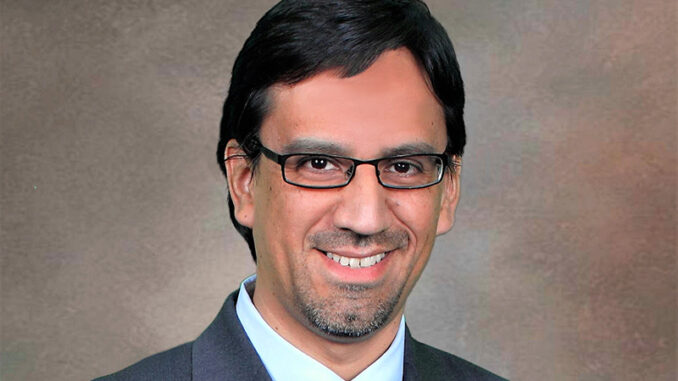
An electoral proposition calls for making California the only place in the world where dialysis centers require the permanent presence of the increasingly scarce doctors specializing in kidney problems.
Proposition 23, which was not developed by doctors or experts, would require that the few nephrologists stop treating thousands of patients in hospitals and offices to remain in dialysis centers where they are completely unnecessary, according to a specialist, Dr. Édgar Vera.
Dr. Vera’s case is representative: he works in the High Desert area, north of Los Angeles, he is responsible for just over 1,000 patients with kidney problems, of whom about 600 require dialysis.
For 20 years, Dr. Vera has cared for patients in hospitals, clinics, and doctor’s offices, and almost daily, he visits four dialysis centers that serve their patients with highly specialized nurses and technicians.
Although Dr. Vera has a few attending physicians, over the past few years “I’ve been trying to get nephrologists to agree to work in the High Desert area and I haven’t been able to get it, which gives you an idea of how scarce they are,” experts in kidney diseases.
The shortage of nephrologists is in California, in the rest of the United States, and there is even a global shortage.
When asking Dr. Vera what could happen if the California electorate approves Proposition 23, the specialist physician responded with clear concern that “countless patients would be at risk of dying.”
The worst thing is that it would be due to a “totally unnecessary” measure, the expert explained; a proposal made by trade unionists who, according to Vera, want to expand their union membership at the cost of putting patients at risk unnecessarily.
This is what, according to Dr. Vera, the California public should know; “Proposition 23 would force the few nephrologists to spend between 12 and 14 hours a day in dialysis clinics, where they are not needed, and to neglect thousands of patients in the meantime, many of them in urgent need of attention.”
But, in addition, in California, and throughout the country, there are not enough doctors to cover all dialysis centers, and many centers would have to close, which would increase the risk for countless patients, because the few centers that could hire nephrologists would be saturated with work.
Another consequence, according to the specialist, is that those few centers that could operate under Proposition 23 would become so expensive because they would have to pay for so many hours worked by specialists, that many patients would be at risk for not being able to pay.
“As we have been working for decades, we do not leave anyone out, we attend dialysis clinics for low-income families, where migrants are treated, sometimes the indigent,” explained Dr. Vera. If 23 passes, he said, none of that would be possible; the few doctors would be tied to certain clinics.
In short, Proposition 23, which requires “a minimum of one doctor during dialysis” does not correspond with the reality that California has a growing deficit of nephrologists, and if they are destined for dialysis clinics, where Dr. Vera, as an expert , assures that they are “totally unnecessary,” countless lives of Californians will be at risk.
Those supporting Proposition 23 only mention one union, the one that wrote the proposition.
Those against 23 is a long list that includes, among many others, the California Medical Association, the American Association of California Nurses, the California Hospital Association, the American College of Surgeons, and the American Academy of Nephrology Physician Assistants (AANPA).
Proposition 23 is also opposed by the Renal Physicians Association, the Latino Diabetes Association, and the National Hispanic Medical Association, among dozens more.



Be the first to comment